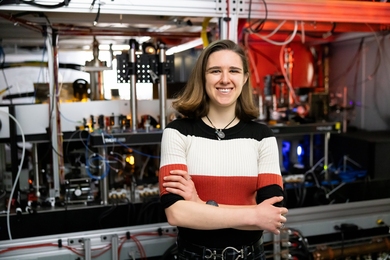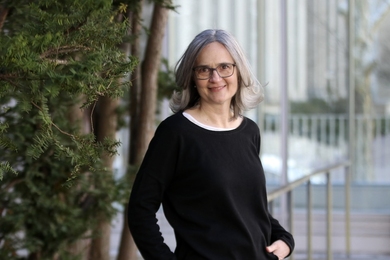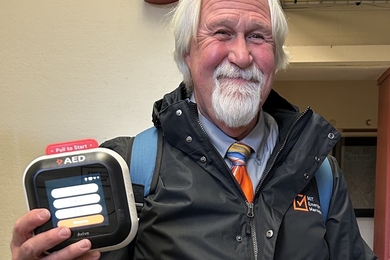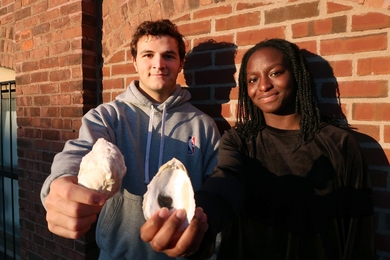Recently a friend told me about something that happened when he was duty officer on an aircraft carrier in the Mediterranean. It was November 22, 1963. He was in the ready room checking the teletype machine as he briefed the carrier pilots just before their next mission.
Suddenly, in the midst of the weather report, this appeared: WE HAVE RECEIVED WORD THAT THE PRESIDENT WAS SHOT IN DALLAS TODAY AND DIED. The message interrupted a report of wind velocity, sea height, barometric pressure and ambient temperature. There was a carriage return and on went the weather report.
The death of the president had come to him in the same way the wind speed had. My friend was stunned, but he could not stop to grieve. Planes were landing and taking off. The assassination of a president was reduced to just one more detail in an already detail-gorged day. Much of our own lives is like this. We are engulfed in so many details that we have no time for reflection. Nor do we need a national tragedy to see this. How many times have we interrupted a pleasant conversation to answer the telephone? We could let it ring, but most of us don't.
Why? Because we value the future more than the present. And the reason why, I believe, is that we are losing the ability to savor the present.
Two years ago the gifted editorial page editor of The Boston Globe, Kirk Scharfenberg, discovered he had cancer. The sky was the limit and then he was struck down. I did not know Kirk Scharfenberg, but when he died, the papers were filled with poignant memorials. So was the radio. I remember listening to one commentator describing an interview he had had with Scharfenberg about his impending death. The commentator asked what Scharfenberg thought he would miss most. He said he would miss the things he had come to take for granted, like the light on the buildings along the Charles just before dusk, or the sight of a little girl dressed for church on Sunday morning, bouncing along behind her mother like a skiff tied to a trawler. I thought how sad it was to wait until you know you are going to die before you pay attention to the moment. So I have made a pact with myself to spend five minutes each day looking at the world as if my days were numbered. During the recent solar eclipse we were told a safe way to view it was through a pinhole camera. You put a pinhole in a piece of cardboard, hold the cardboard between the sun and a piece of paper and the image of the eclipse is projected onto the paper. Now as it happens, the way leaves on a tree overlap makes a thousand pinhole cameras and last week I watched a thousand crescent shaped eclipses projected onto the sidewalk by the leaves, turning the concrete into bubble wrap. That was my Scharfenberg moment for that day.
"Commence" comes from the Latin prefix com- and the verb initiare "to initiate." So a commencement is not so much a beginning or an ending as it is an initiation. Here are my initiation instructions for you. When the ceremony is over and you go on your way, find something you took for granted before your initiation and look at it as if you were seeing it for the last time. Maybe it will become a habit.
Samuel Jay Keyser is Associate Provost for Institute Life. Adapted from a commencement address delivered to the graduating class of the Lowell Institute School at MIT on May 19, 1994.
A version of this article appeared in the June 29, 1994 issue of MIT Tech Talk (Volume 38, Number 37).





